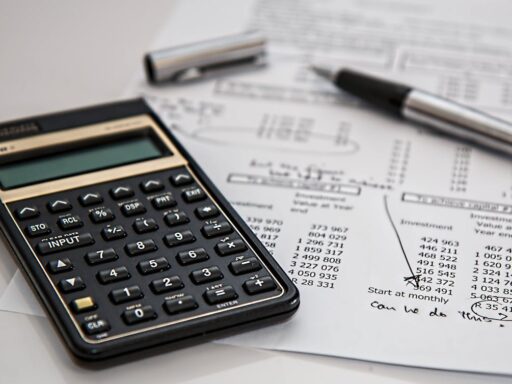Forex trading, also referred to as foreign exchange trading, is the buying and selling of currencies with the expectation of generating profits from their fluctuating value. As one of the world’s largest and most liquid markets, the forex market operates continuously for 24 hours a day, five days a week, and is accessible to individual traders through an international forex trading platform.
While the prospects may seem to be abundant, venturing into forex trading without the proper knowledge or preparation can expose participants to massive losses. The following article presents useful information potential traders should know before engaging in the forex market, presenting educational insights in accordance with applicable financial regulations.
Essentially, trading in the forex involves exchanging one currency for another on an agreed-upon price in hope that movement in the market will create a favorable exchange rate. The forex market is not centralized and exists as an electronic network of banks, brokers, institutions, and individual traders on international forex trading networks
Trades are typically entered into in currency pairs such as EUR/USD or GBP/JPY, where the base currency is bought or sold versus the quoted currency. These pairs fluctuate in worth constantly depending on interest rates, geopolitical activities, and announcements of economic data.
One of the defining features of forex trading is the use of leverage, by which means traders can trade larger positions than their initial capital would otherwise be capable of supporting. Leverage increases profit potential, but it also increases the possibility of large losses.
For example, one trader may have access to leverage of 50:1 such that they can regulate $50 in the market using $1 of their own money. However, traders should use care and bear in mind that leverage is risky. Regulatory bodies in various jurisdictions will place limits on leverage for the protection of retail traders, and users must familiarize themselves with the leverage policy of their choice global forex trading platform.
There is no one platform that is suitable for all in forex trading. Prospective traders can look for platforms based on their personal needs, such as ease of use of interfaces, customer support, trading tools, and educational content. It is necessary to select a platform that is governed by a respected financial regulator like the Financial Conduct Authority (FCA) or Australian Securities and Investments Commission (ASIC), as regulation ensures financial integrity and minimizes the threat of scams.
Some of the most important features to consider when selecting platforms are:
Successful forex traders tend to use technical analysis, fundamental analysis, or a mix of both.
Technical analysis entails analyzing past price charts and recognizing patterns that could indicate future market action. Traders frequently use moving averages, trend lines, and oscillators to guide their own decisions.
Fundamental analysis, on the other hand, considers macroeconomic indicators, such as GDP growth, employment rates, and central bank policy, that influence exchange rates. For instance, the interest rate decisions of a country can significantly impact the strength or weakness of its currency.
No analysis approach is a guarantee of success, but traders can find value in developing a working knowledge of both methods to maximize their market sensitivity.
Forex trading is highly risky and not a suitable investment for everyone. Utilizing an effective risk management strategy is essential to protecting capital and staying emotionally disciplined.
Risk management tools commonly used are:
A risk-free approach of risk management also involves awareness of one’s own economic condition, trading objectives, and the tolerance for risk prior to active trading.
Before making real money investments, most traders will find demo accounts offered by most online forex trading sites to be a valuable resource. They allow participants to trade with live market data using virtual funds, presenting the opportunity to experiment with techniques, familiarize oneself with the abilities of the platforms, and build trading confidence.
Demo trading does not exactly replicate the psychological pressure of trading real time, but it remains a good teaching tool, especially for novice traders who wish to learn without incurring a financial cost.
Apart from technical skill, there is also the psychological aspect of trading which plays a significant role in performance. The volatility nature of the forex market might provoke emotional reactions such as fear, greed, or frustration. These will most likely lead to impulsive action and deviation from a sound trading plan.
To cultivate discipline, the majority of traders opt for a written trading diary, which facilitates the recording of trades, the reasons why, and emotional response. Periodically reviewing such a diary can determine behavioural patterns, thereby promoting self-improvement.
Trading forex is not inexpensive. While the majority of platforms claim to offer commission-free trading, other fees might still apply, including:
Traders must be encouraged to review the full fee structure provided by any international forex trading venue in which they wish to participate, and factor in such charges when framing their overall strategy.
The foreign exchange market is ever-evolving and susceptible to effects of global events, economic shifts, and emerging technologies. In order to stay competitive, traders must be committed to ongoing learning. Quality sources of learning are:
Traders having a learning mentality of ongoing learning are more likely to adapt according to changing market conditions and improve their strategy on a regular basis.
Conclusion: Act with Caution, Trade with Knowledge
Forex trading offers unique opportunities to individuals who have the dedication to learn and the self-control to manage risk. But it is not a surefire means to make money, and some traders do lose money, particularly early in their experience.
Through the acquisition of a good educational foundation, demo account practice, choosing a well-screened regulated global forex trading platform, and employing sound risk management techniques, one may trade on the forex more responsibly and sustainably.







